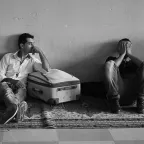ICRC supports people with amputations in eastern Ukraine
… ICRC increases support for displaced people Russia-Ukraine: Overview of the ICRC’s response … after the escalation of the armed conflict Russia–Ukraine international armed conflict: …
… ICRC increases support for displaced people Russia-Ukraine: Overview of the ICRC’s response … after the escalation of the armed conflict Russia–Ukraine international armed conflict: …

… armed conflicts between Israel and Gaza, and Russia and Ukraine. Violence in Ethiopia has …

… ICRC Photo Library / hist-e-00402 Famine in Russia, 1921-1923. A joint relief operation was …
… Nigeria, the Occupied Palestinian territory, Russia, South Africa, Syria, Switzerland, the …

… the UN Security Council (P5 - China, France, Russia, the United Kingdom, and the United …

… facilitated the delivery of aid from Russia. Water, sanitation and shelter The …
… also welcomed the joint statement issued by Russia, the United Kingdom and the United …
… for example in the armed conflict between Russia and Ukraine, or in Syria among others. …

… This month States gathered in Russia to mark the 150th anniversary of the St …
… Working Group meeting was held in Moscow, Russia, during the World Medical Association …
Try one of the following resources:
Created in 1863, the ICRC library, alongside the ICRC archives, provides an indispensable documentary reference on the organization itself and international humanitarian law.
International humanitarian law is based on a number of treaties, in particular the Geneva Conventions of 1949 and their Additional Protocols, and a series of other instruments.
Customary international humanitarian law consists of rules that come from "a general practice accepted as law" and that exist independent of treaty law.